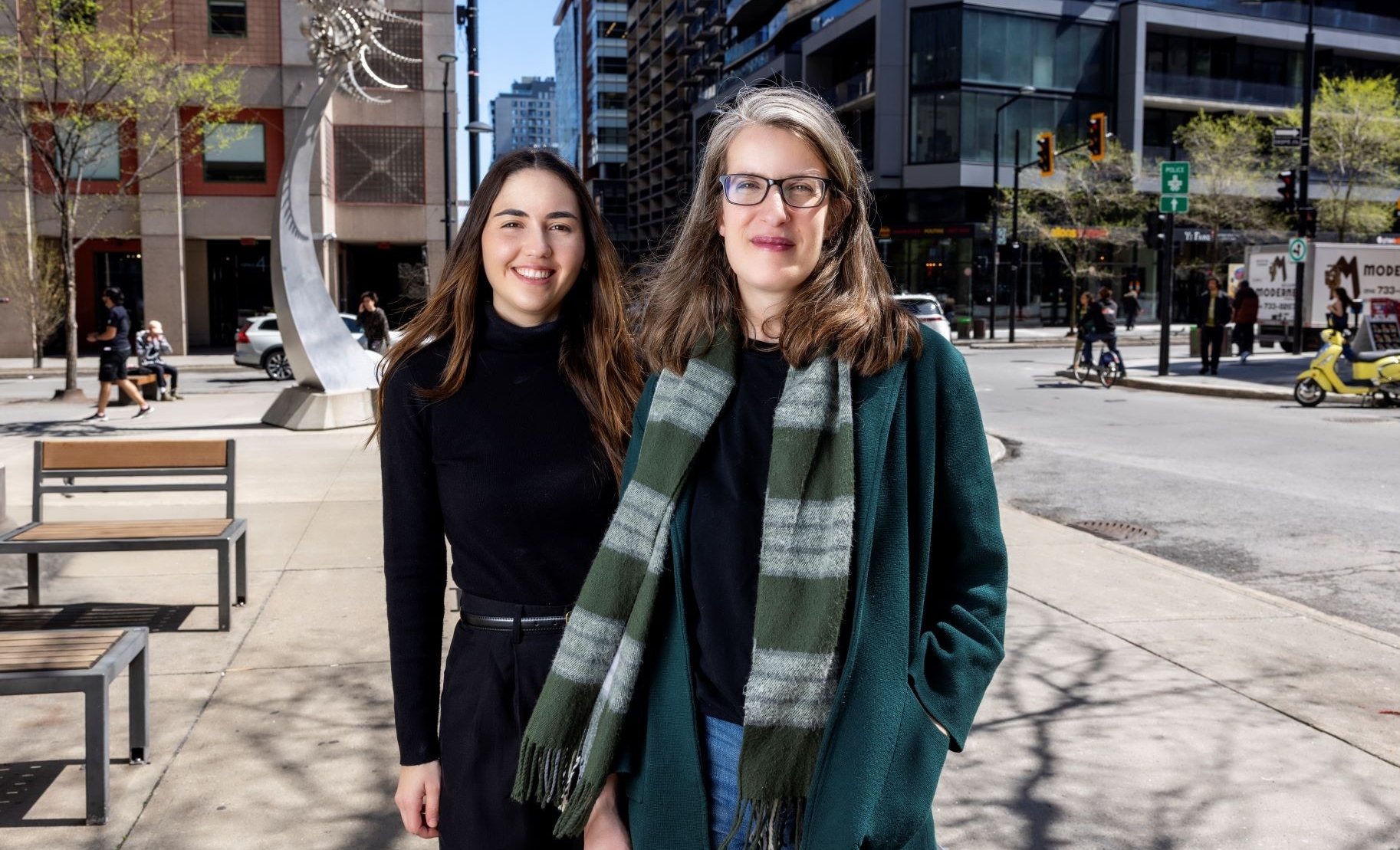Following numerous attempts at peace, in 2016, the Colombian government and the FARC, the largest left-wing guerilla group, signed a peace treaty. Although Colombians were deeply divided about the treaty's prospects when it was first signed, the agreement put an end to six decades of armed conflict in which hundreds of thousands of Colombians, 80 per cent of them civilians, perished. When it came to the prospect of peace, skepticism and hope were at odds, including among the urban youth in Bogotá, Colombia's capital.
A newly published study of Colombian youths' perspectives on the conflict and its aftermath brings that skepticism and hope for restoration into focus. The paper, published in Political Psychology, was led by Laura Pareja Conto, MA 23, and Holly Recchia, a professor of education in the Faculty of Arts and Science.
The study revealed a deep cynicism regarding the peace accord, an overall disillusionment with the country's political system and distrust toward both the government and the FARC. However, it also showed that these youth generally supported the peace process, with 57 per cent saying they hoped it would succeed.
They expressed strong feelings about the need to improve the lives of the conflict's victims, accountability for harm and ending a seemingly intractable cycle of violence.
Most students also expressed having a limited understanding of the history of the Colombian armed conflict, which the researchers noted is a possible point of intervention. The country aims to reconstruct a more inclusive narrative of the events and root causes that propelled the conflict.
 Laura Pareja Conto (left) with Holly Recchia: "Youth are very nuanced in their proposed optimal solutions for restoration and peace."
Laura Pareja Conto (left) with Holly Recchia: "Youth are very nuanced in their proposed optimal solutions for restoration and peace."
Divided but hoping for the best
The data were gathered in 2018 from interviews with 77 adolescents at two high schools in Bogotá. The researchers chose public schools located in neighbourhoods with lower to middle socioeconomic status to reflect the reality of the majority of the city's residents.
"At the time, Colombia was very polarized. The country was in the middle of a presidential election and the divide following the peace agreement plebiscite was still palpable," says Pareja Conto. "With this study, we aimed to go beyond this division to explore the concerns and tensions in how youth understand the armed conflict and peace process."
"We were not surprised by the levels of cynicism, given the history of the conflict in Colombia and the corruption that has plagued its different political systems and institutions," adds Recchia. "It reflects youths' apt understandings of their social realities. But we found that this cynicism was juxtaposed with their focus on improving the lives of people who were impacted, on restoring relationships and ending violence - this was the real take-home for us."
According to Colombia's truth commission, at least eight million Colombians were displaced between 1985 and 2019. Bogotá remains the country's largest receptor. To protect the participants' privacy and well-being, the researchers did not ask about their own personal experiences of the conflict.
They were asked about their knowledge of the conflict itself, the peace treaty and how it was being discussed in the public sphere. The students also described their conversations with others about the conflict and the peace process. All the questions were open-ended.
Each participant was presented with two hypothetical though realistic scenarios depicting harmful events that resulted in either loss of life or damage to infrastructure. They were asked how best to address these harms and to justify their proposals. Their answers were then codified and analyzed by the researchers.
The results were not meant to provide an authoritative portrait of Colombian youth, the researchers note. Rather, it was meant to provide a sociopolitical and psychological analysis of urban Colombian adolescents at a certain time and place.
Shared humanities
Pareja Conto acknowledges that her home country remains divided but has made significant strides in the years since the peace agreement was signed. Peace education initiatives are being implemented in Colombian schools, with possibilities for nuanced classroom discussions on difficult issues like justice and reconciliation.
The research can have relevance outside Colombia, given the unfortunate prevalence of conflict around the globe.
"The data make evident that even when people hold opposing perspectives, common ground can be identified. Across the political spectrum, youth are expressing underlying concerns about restoring those who have been harmed and ending cycles of violence," she says.
"It's a humane orientation to express empathy for people who have experienced profound loss, but beyond this, youth are very nuanced in their proposed optimal solutions for restoration and peace."
Contributing authors include Angelica Restrepo from Concordia University, Gabriel Velez from Marquette University, Roberto Posada-Gilede from Universidad Nacional de Colombia and Cecilia Wainryb of the University of Utah.
The Social Sciences and Humanities Research Council of Canada (SSHRC) and the Concordia University Research Chairs program contributed funding for this research.
Read the cited paper: "Urban Colombian youths' perspectives on the armed conflict and possibilities for ways forward."






